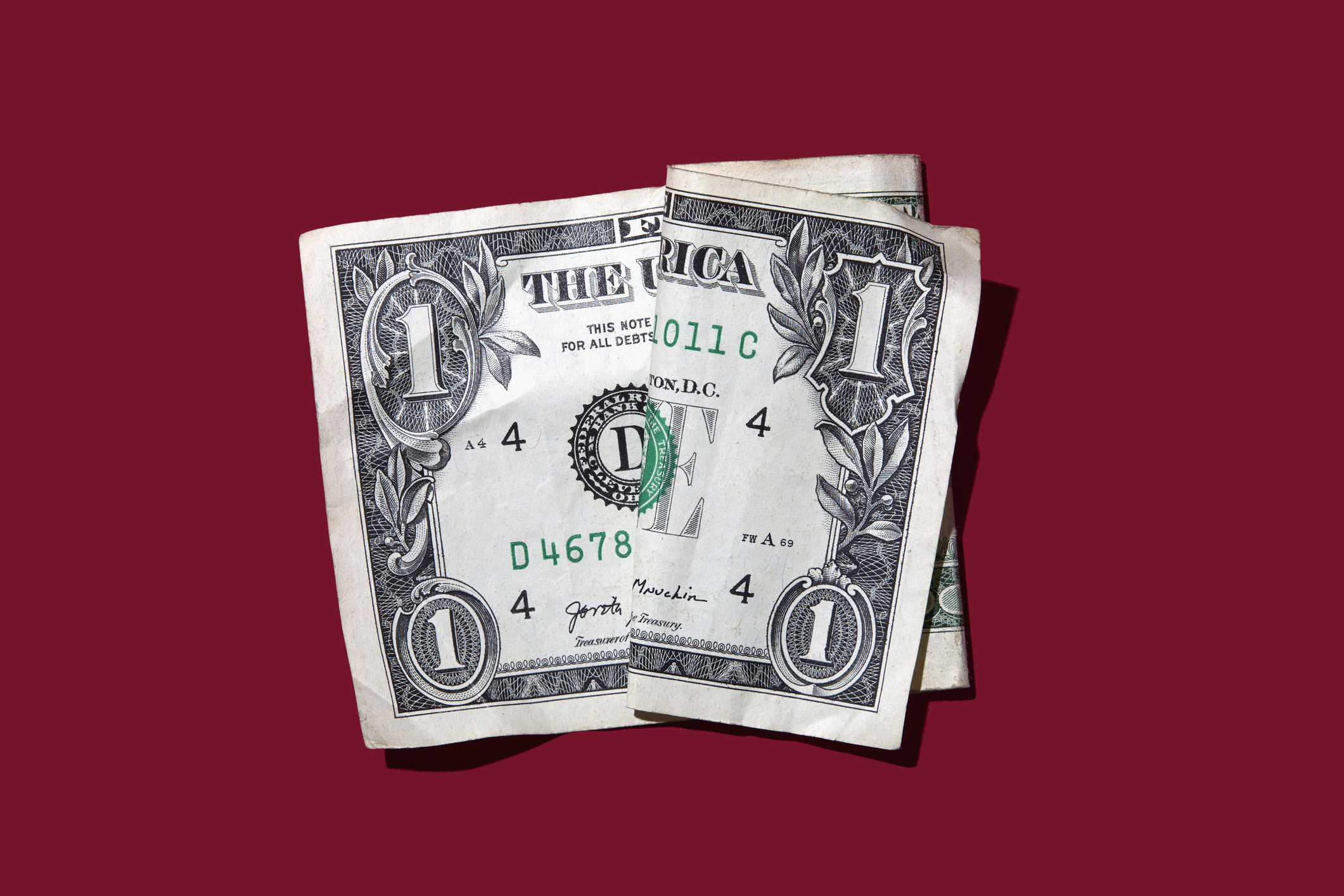How Collectibles Are Taxed: A Closer Look at Capital Gains Rules
Gains on collectibles like gold can be subject to a higher rate than for most other investments.


Profit and prosper with the best of Kiplinger's advice on investing, taxes, retirement, personal finance and much more. Delivered daily. Enter your email in the box and click Sign Me Up.
You are now subscribed
Your newsletter sign-up was successful
Want to add more newsletters?
Collectibles have received a lot of attention recently, especially considering Costco's entry into the precious metals market.
For instance, you probably heard that the retail giant started selling gold bars online, generating a frenzy among investors and casual shoppers. (Costco reported over $100 million in gold bar sales in a single quarter a year ago.)
However, those gold bars have tax implications that might catch buyers off guard. And it’s not just about gold. When it comes to taxes, the IRS casts a wide net in terms of what counts as a collectible.
From just $107.88 $24.99 for Kiplinger Personal Finance
Become a smarter, better informed investor. Subscribe from just $107.88 $24.99, plus get up to 4 Special Issues

Sign up for Kiplinger’s Free Newsletters
Profit and prosper with the best of expert advice on investing, taxes, retirement, personal finance and more - straight to your e-mail.
Profit and prosper with the best of expert advice - straight to your e-mail.
That matters because collectibles are subject to special tax rules. Essentially, you’ll pay a higher capital gains rate when you sell them.
So, let’s dive into how the IRS treats your treasures, from gold to art, coins, and more.
What qualifies as a collectible?
Treasury and the IRS have a comprehensive definition of collectibles, But essentially, "collectibles" include but are not limited to:
- Works of art
- Rugs and antiques
- Metals and gems (any, but e.g., gold, silver, platinum, palladium)
- Stamps and coins
- Alcoholic beverages (any but for example, fine wines, rare whiskeys, vintage champagnes, craft beers, limited edition spirits)
Note: Additionally, the IRS reserves the right to classify any other tangible personal property as a collectible for tax purposes. And there are some limited exceptions for certain metals, gems, and coins.
Understanding whether an item qualifies as a collectible is key since the classification affects the applicable tax rate on capital gains from its sale.
But keep in mind that not all items that seem like collectibles are taxed as such. For instance:
- Certain precious metals and coins may be exempt if they meet specific criteria (limited exception).
- Despite their collectible nature in the market, the IRS doesn't currently classify digital assets such as NFTs as collectibles.
It's also worth noting that precious metal ETFs are treated as collectibles for tax purposes.
Collectible capital gains tax rate
Essentially, if you sell your collectible for a profit, you will face capital gains tax. As you would expect, the amount you'll owe depends on how long you've held onto the item.
For short-term holdings of one year or less, any profit is taxed as ordinary income at your marginal federal tax rate.
Long-term gains, on the other hand, are treated differently.
- If you've held the collectible for over a year, you'll be subject to a maximum tax rate of 28%.
- This rate is higher than the typical long-term capital gains tax rates of 15% or 20%.
Why the higher rate? The federal government basically wants to discourage speculation in potentially volatile markets and encourage investments that contribute more directly to economic growth.
Also, while the maximum 28% rate for long-term collectible gains exceeds rates for other assets, it's still lower than short-term rates taxed as ordinary income.
How to calculate tax on collectibles
Determining your tax liability on a collectible sale involves a few steps. First, you need to establish your basis in the item.
- For purchased collectibles, like those Costco gold bars, for example, your basis is generally the original cost plus any associated fees, e.g., costs for restoration (for hobbyists), expenses for specialized storage (e.g., climate-controlled facilities for art), or fees paid to brokers or dealers.
- If you inherited the collectible, your basis would be its fair market value at the time of inheritance.
Once you've determined your basis, subtract it from the sale price to find your capital gain. This gain is then subject to the appropriate tax rate based on your holding period and income level.
To report sales for collectibles, use Form 8949. That information is used on Schedule D of Form 1040 to calculate and report your overall gains or losses.
Can the marginal rate on collectibles exceed 28%?
The effective tax rate on collectible gains can sometimes exceed 28% due to several factors.
Net investment income tax (NIIT): Depending on your adjusted gross income, you might face a 3.8% net investment income tax on your gains.
The NIIT is an additional tax on investment income for those with income exceeding specific thresholds ($200,000 for single filers and $250,000 for married couples filing jointly).
For more information, see What is Net Investment Income Tax?
AMT: If you are subject to the Alternative Minimum Tax (AMT), the effective tax rate could increase as well.
State and local taxes can also contribute to a higher overall tax burden when it comes to gains on collectibles.
So, consider these potential variables when assessing the tax implications of selling your collectibles.
Tax on collectibles: Bottom line
Understanding how collectibles are taxed is key to making informed investment decisions and effectively managing your tax liability. And as the collectibles market grows, staying informed about these tax implications is increasingly important.
To manage your tax burden when selling collectibles, consider spreading your sales over multiple years to distribute your taxable gains. Also, keep detailed records of all costs associated with acquiring and maintaining your collectibles.
Doing so and consulting with a trusted tax professional or financial planner to determine strategies that are right for you, can help potentially reduce your taxable gain.
Related
- Capital Gains Tax Rates for 2025 and 2026
- What is the Net Investment Income Tax (NIIT)?
- Millions More Could Face the Alternative Minimum Tax (AMT)
- Capital Gains Tax Explained
Profit and prosper with the best of Kiplinger's advice on investing, taxes, retirement, personal finance and much more. Delivered daily. Enter your email in the box and click Sign Me Up.

Kelley R. Taylor is the senior tax editor at Kiplinger.com, where she breaks down federal and state tax rules and news to help readers navigate their finances with confidence. A corporate attorney and business journalist with more than 20 years of experience, Kelley has helped taxpayers make sense of shifting U.S. tax law and policy from the Affordable Care Act (ACA) and the Tax Cuts and Jobs Act (TCJA), to SECURE 2.0, the Inflation Reduction Act, and most recently, the 2025 “Big, Beautiful Bill.” She has covered issues ranging from partnerships, carried interest, compensation and benefits, and tax‑exempt organizations to RMDs, capital gains taxes, and energy tax credits. Her award‑winning work has been featured in numerous national and specialty publications.
-
 4 High-End Experiences Worth the Splurge After 50
4 High-End Experiences Worth the Splurge After 50These curated date ideas provide the perfect backdrop for couples ready to enjoy the very best that the world has to offer.
-
 Health Care Stocks Have Sagged. Can You Bet on a Recovery?
Health Care Stocks Have Sagged. Can You Bet on a Recovery?The flagging health care sector has perked up a bit lately. Is it time to invest?
-
 Costco's Auto Program: Can Membership Pricing Really Save You Money on a Car?
Costco's Auto Program: Can Membership Pricing Really Save You Money on a Car?Costco's Auto Program can simplify the car-buying process with prearranged pricing and member perks. Here's what to know before you use it.
-
 2026 Tax Refund Delays: 5 States Where Your Money Is Stuck
2026 Tax Refund Delays: 5 States Where Your Money Is StuckState Tax From New York to Oregon, your state income tax refund could be delayed for weeks. Here's what to know.
-
 Paper Tax Filers Face Long Wait as IRS Digitization Effort Stalls
Paper Tax Filers Face Long Wait as IRS Digitization Effort StallsTax Filing Last April, the IRS launched its Zero Paper Initiative to speed up paper tax return processing. The project isn’t going well.
-
 How One Extra Dollar of Income Can Cost You Thousands in Retirement
How One Extra Dollar of Income Can Cost You Thousands in RetirementRetirement Even modest changes in retirement income can raise Medicare premiums under IRMAA. Here’s how a small increase can affect your retirement costs.
-
 First the Penny, Now the Nickel? The New Math Behind Your Sales Tax and Total
First the Penny, Now the Nickel? The New Math Behind Your Sales Tax and TotalRounding Tax A new era of "Swedish rounding" hits U.S. registers soon. Learn why the nickel might be on the chopping block, and how to save money by choosing the right way to pay.
-
 I'm a Wealth Adviser: This Strategy Can Slash Your Taxes on Large Stock or Property Sales
I'm a Wealth Adviser: This Strategy Can Slash Your Taxes on Large Stock or Property SalesSelling a major asset can result in huge capital gains taxes, but combining direct indexing with tax-loss harvesting can significantly reduce your tax bill.
-
 Is Life Insurance Taxable When It's Paid Out?
Is Life Insurance Taxable When It's Paid Out?You received a big check from your loved one's life insurance policy. Will the IRS be expecting a check from you now?
-
 Trump Tariffs Supreme Court Ruling: What's Next for Consumers and Retailers
Trump Tariffs Supreme Court Ruling: What's Next for Consumers and RetailersTax Law This landmark decision will reshape U.S. trade policy and could define the outer boundaries of presidential economic power for years to come.
-
 I'm a Financial Planner: This Is How You Can Legally Divorce the IRS for the Rest of Your Life
I'm a Financial Planner: This Is How You Can Legally Divorce the IRS for the Rest of Your LifeWith some careful planning focused on the standard deduction, retirees who have large sums in tax-deferred accounts can avoid unpleasant tax bills and even part ways with the IRS for good.